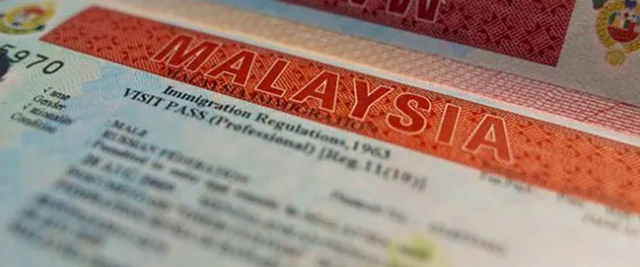Though not ambitiously marketed, Malaysia’s two visas aimed at expats who are looking to be a part of the country’s digital economy are initiatives worth talking about.
Malaysia launched the multimedia super corridor (MSC) around 28 years ago to capture a share of the rapidly growing international digital market. It has paid off and now the digital economy is getting close to 25% of the country’s GDP. Malaysia Digital Economy Corporation (MDEC), an agency under Malaysia’s Ministry of Digital, was created to lead Malaysia’s digital economy and make a success of the multimedia super corridor.
Companies given MSC status (now known as Malaysia Digital status) are given various incentives including tax benefits, easier employment passes for skilled workers, and increased flexibility for funding.
The increase in the size of the global digital economy has led to a rapidly growing segment of employees who like the idea of changing their work environment even if the work duties are the same as they would be back home. Because of the nature of their job, many people working in the digital economy can do it from any location as long as there is a good link to the internet. These digital nomads, as they are called, move around the world and can perform all sorts of work including freelance writing, web development, graphic design, and related types of work that can be done remotely.
The number of people working in this sector has increased dramatically, especially during the Covid-19 pandemic, and today there are an estimated 35 million digital nomads. Typically, they are younger (in their 30s), and not surprisingly, most of them do not look at it as a long-term lifestyle.
DIGITAL NOMAD VISA
Bali has proven to be one of the most popular destinations for digital nomads in this part of the world, but in 2022, Malaysia decided to encourage them to consider this country. MDEC launched the DE Rantau Nomad Pass, which is their version of the digital nomad visa and is valid for one year and renewable for a further year.
Eligible applicants would include IT and digital talents, working remotely or as freelancers. They must show an annual income of US$24,000 and a valid contract of employment or service. Once approved, nomads can bring their spouse and children with them. There have already been several thousand applications, and the number of approvals is approaching 1,200.
TECH ENTREPRENEUR PASS
Less well-known is MDEC’s Tech Entrepreneur Pass. It was launched in 2017, but we missed the announcement and only came across it when we were researching the rules for the digital nomad visas. This visa would seem to have greater potential to contribute to the growth of the country’s digital economy but it would be a much smaller target audience.
We spoke to the staff responsible for these passes and were impressed with their enthusiasm and knowledge. The entrepreneur pass targets two main groups, the new entrepreneur, and the established entrepreneur. The new entrepreneur is someone who has an innovative idea in the digital field and the visa will allow them to work here and develop the idea. The visa falls under the Professional Visitor’s Pass and is valid for one year and can be renewed for a further year.
If successful, they should be able to switch to the established entrepreneur pass. The established entrepreneur is required to demonstrate that they have already established a viable digital business elsewhere or have upwards of RM10 million to invest in a new idea. They receive a visa under the Residence Pass, which has five-year validity and is renewable. Visa holders are permitted to bring their immediate family with them. MDEC provides them with support and other resources to assist visa holder. The take-up for this group has understandably been smaller, but it has also been constrained by the lack of funds for marketing it.
Unlike the MM2H visa, they do not allow agents to assist, so they miss out on that additional marketing opportunity. We have previously shared our thoughts on how we feel Malaysia could do more to position itself as a country that welcomes skilled foreigners and small foreign investors, not just large multinationals. We have always felt that a strong group of expatriates at all levels of business can be beneficial to any economy. In our view, having residents from all over the world is clear evidence of a country’s international outlook.
The good news is the digital economy in Malaysia is still regarded as a priority and is showing solid growth as the nation continues its effort to position itself as the preferred digital hub in ASEAN.
"ExpatGo welcomes and encourages comments, input, and divergent opinions. However, we kindly request that you use suitable language in your comments, and refrain from any sort of personal attack, hate speech, or disparaging rhetoric. Comments not in line with this are subject to removal from the site. "























